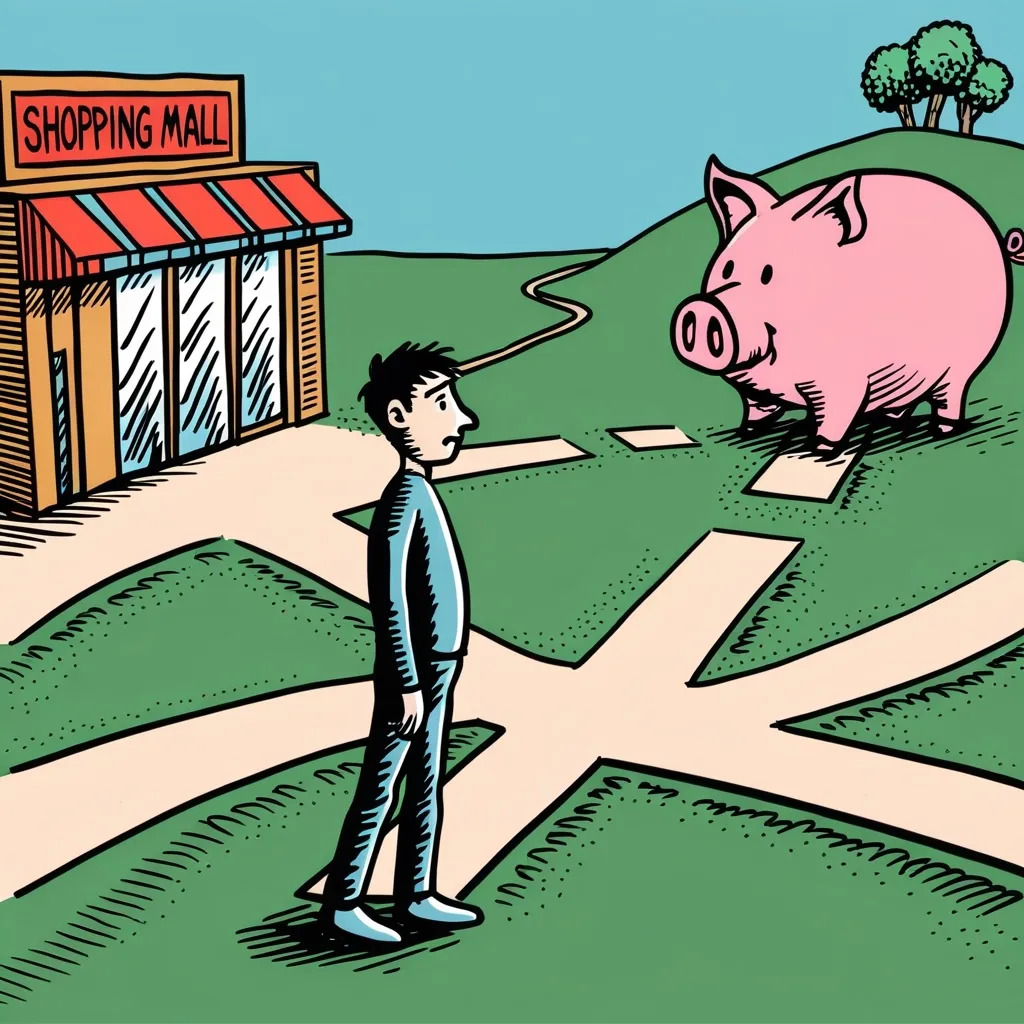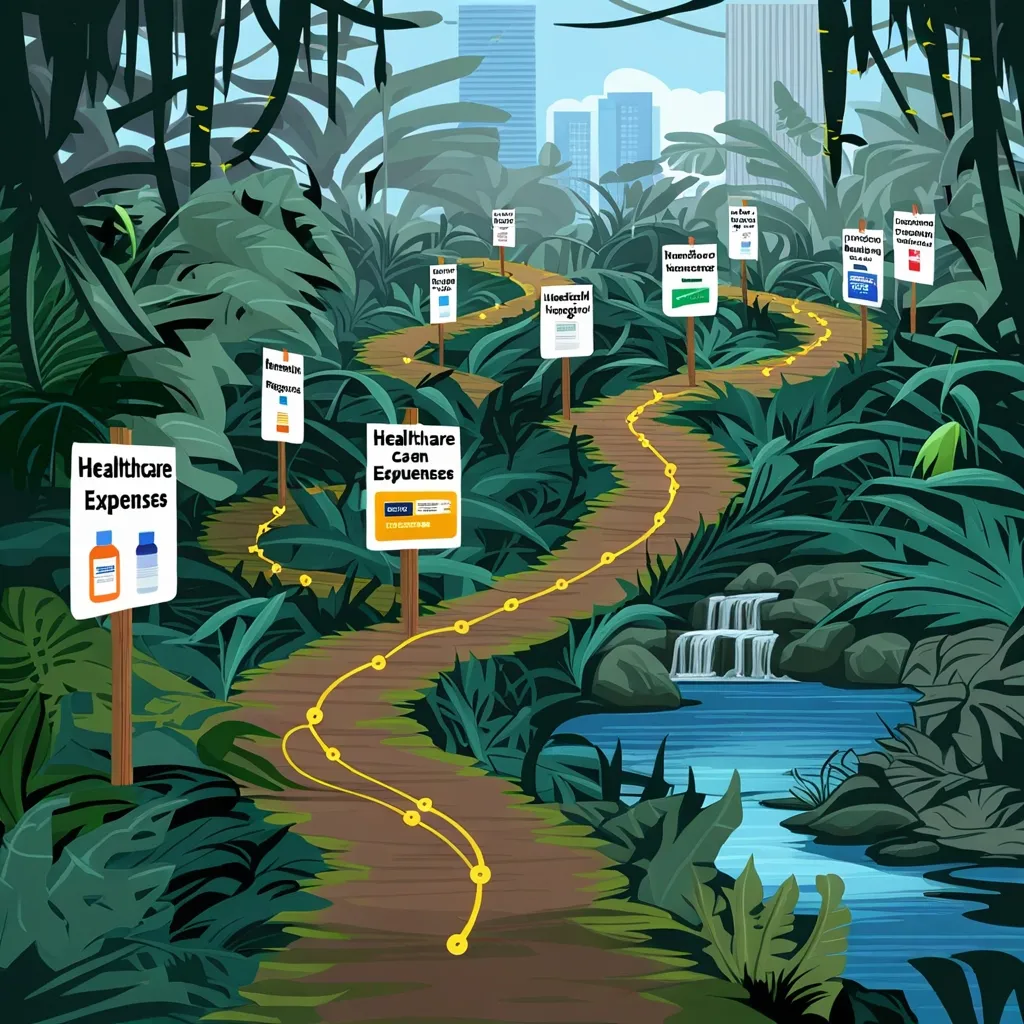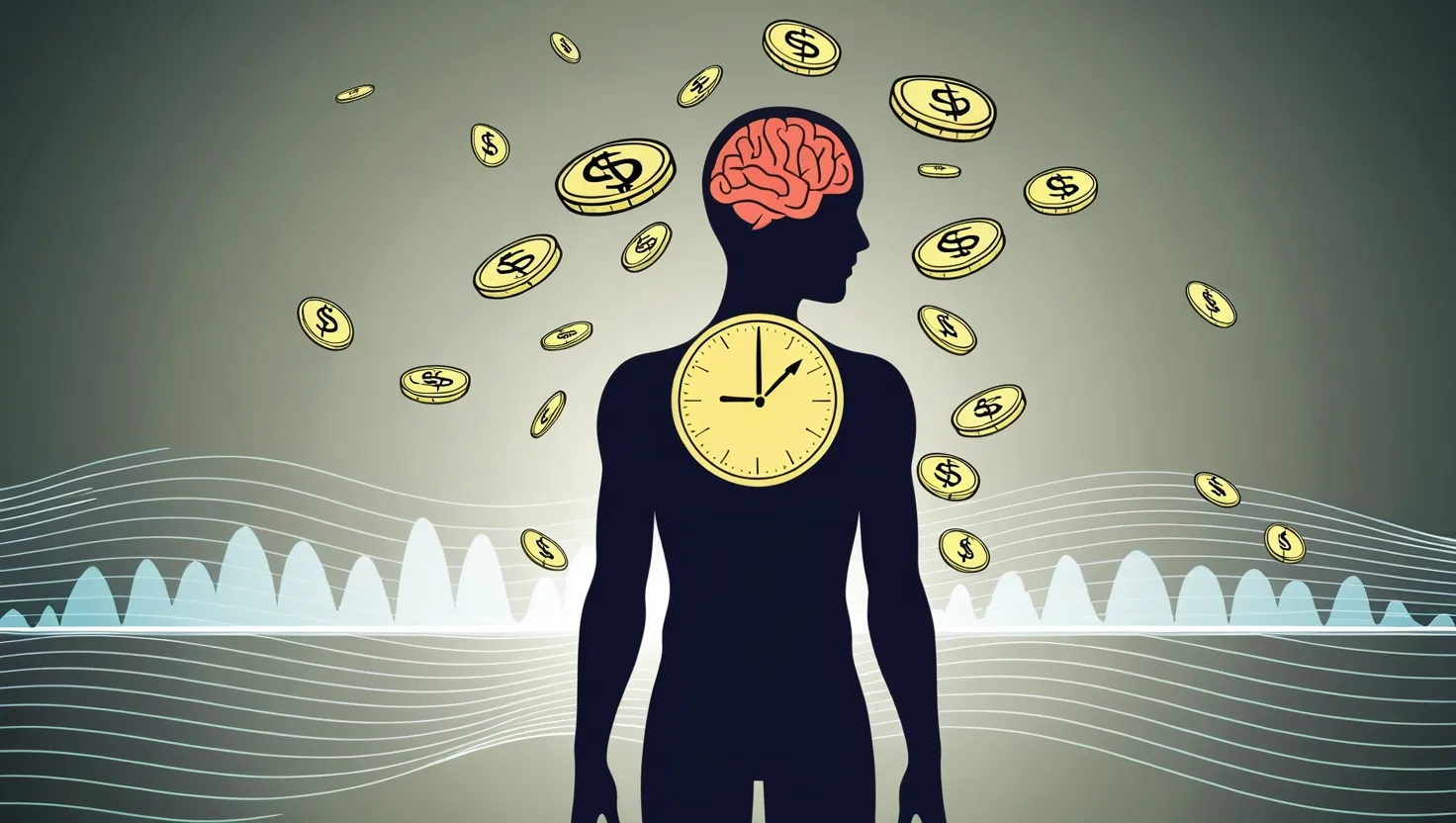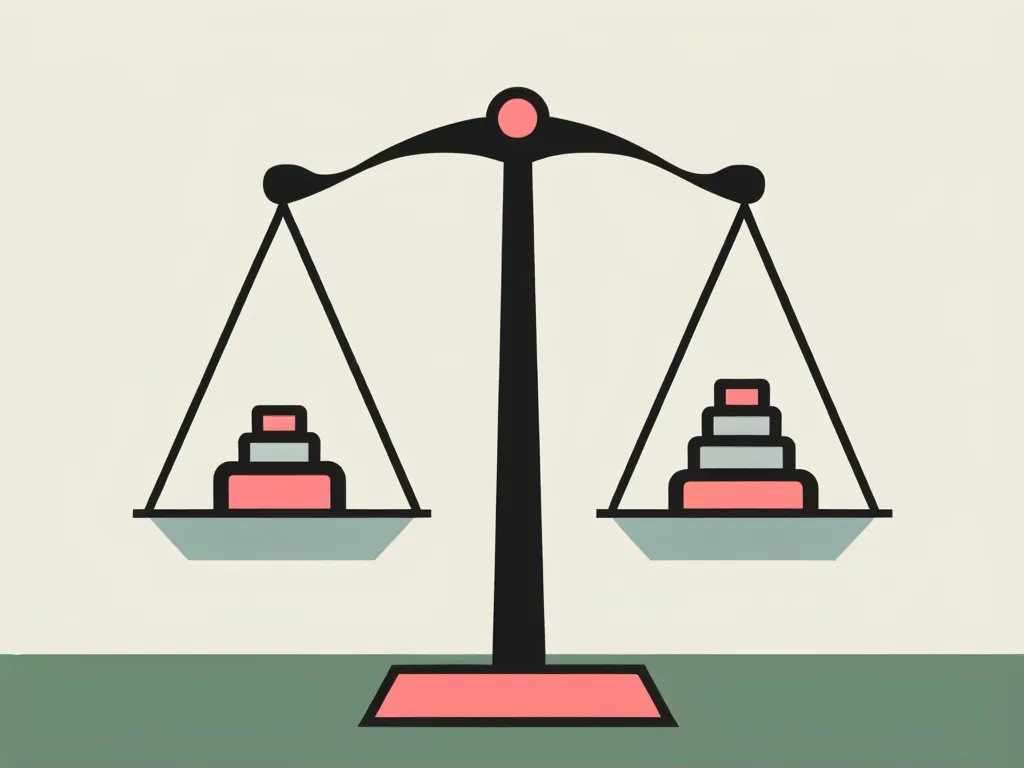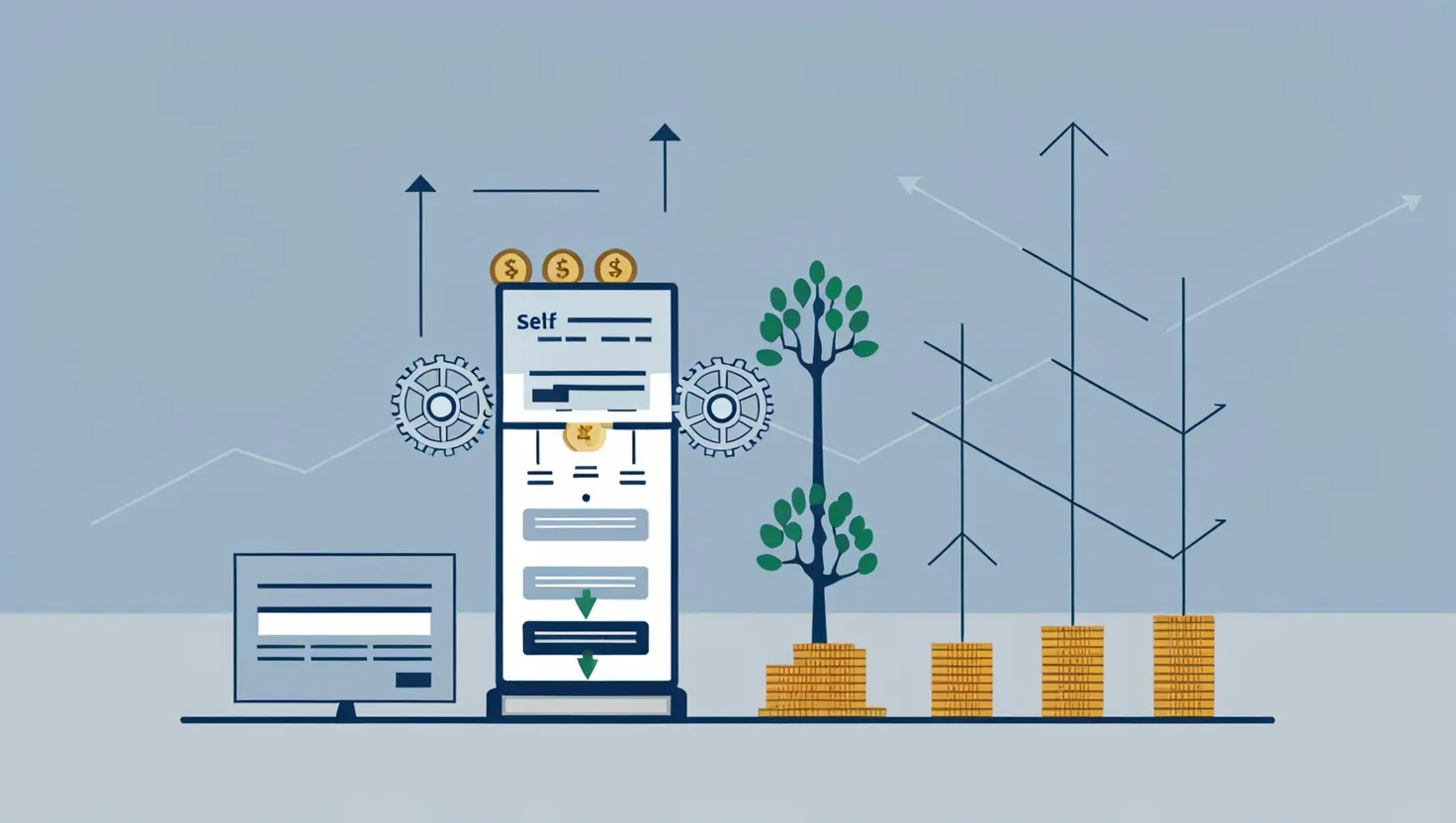Money Habits That Can Wreck Your Future: A Wake-Up Call
Let’s talk about cash, folks. We all have our little quirks when it comes to spending, but some of these habits can seriously mess up our financial future. Trust me, I’ve been there, done that, and got the overpriced t-shirt to prove it. So, let’s dive into the money traps we fall into and how to climb back out.
Impulse buying? Oh boy, it’s a sneaky one. You’re scrolling through your phone, minding your own business, and bam! That shiny new gadget is calling your name. Before you know it, you’ve hit “Buy Now” and your wallet’s crying. Been there, right? It’s like that time I bought a waffle maker at 2 AM because, well, waffles. Did I need it? Nope. Did I use it? Maybe twice. That’s fifty bucks I could’ve saved or invested. Yikes.
Here’s a trick: when you feel that urge to splurge, take a breath. Ask yourself, “Do I really need this?” Make a list before you shop and stick to it like glue. And for the love of your bank account, avoid online shopping when you’re stressed or bored. Trust me, that “therapeutic” shopping spree isn’t as healing as you think.
Speaking of therapy, let’s chat about retail therapy. You know, when you’ve had a crappy day and suddenly find yourself at the mall, credit card in hand. It feels good in the moment, right? But that high fades faster than the dye on that cheap t-shirt you just bought. I get it, we all need a pick-me-up sometimes. But if you’re hitting the shops every time life throws you a curveball, it’s time to find a new coping mechanism. Maybe try a run, chat with a friend, or hey, even scream into a pillow. It’s free and surprisingly effective.
Now, let’s talk about living beyond our means. It’s like trying to fit into jeans two sizes too small – uncomfortable and probably not a good look. We’ve all been tempted to keep up with the Joneses, but here’s a secret: the Joneses are probably in debt up to their eyeballs. Living beyond your means is like building a house of cards – it looks impressive until the slightest breeze knocks it all down.
Start by getting real with yourself. Make a budget that actually reflects what you earn and spend. Track every penny for a month – it’s eye-opening, trust me. You might realize you’re spending way more on takeout than you thought. (No judgment, we’ve all been there.) Prioritize the essentials and cut back on the rest. Your future self will thank you.
Credit cards – oh boy, these little plastic devils. They’re not inherently evil, but man, they can get you into trouble faster than you can say “minimum payment.” It’s so easy to swipe now and worry later, but that high-interest debt can snowball before you know it. If you’re constantly relying on credit to cover your expenses, it’s time to pump the brakes.
Focus on paying off those high-interest debts ASAP. It might mean tightening your belt for a while, but it’s worth it. Consider consolidating your debts or negotiating with creditors for lower rates. Remember, every dollar you’re not paying in interest is a dollar in your pocket.
Let’s talk about the importance of having a rainy day fund. Life has a funny way of throwing curveballs when you least expect it. Without an emergency fund, you’re just one broken car or surprise medical bill away from financial stress. Start small – even $20 a week adds up over time. Before you know it, you’ll have a nice little cushion for when life decides to play hardball.
And don’t even get me started on ignoring long-term financial goals. It’s like planting a tree – the best time to start was 20 years ago, but the second-best time is now. Retirement might seem a million years away, but trust me, it sneaks up on you faster than you’d think. Start saving now, even if it’s just a little bit. Your future self will be sipping margaritas on a beach somewhere, thanking you for your foresight.
Oh, and those subscription services? They’re the ninjas of the financial world – silent but deadly to your budget. It’s so easy to sign up for them and then forget all about it. Before you know it, you’re paying for three different streaming services, a meal kit delivery, and a box of random beauty products every month. Take a hard look at your subscriptions and ask yourself if you really need them all. Maybe it’s time to say goodbye to that obscure documentary streaming service you haven’t watched in months.
Daily habits can be budget killers too. That daily latte might not seem like much, but over a year, it adds up to a pretty penny. I’m not saying you have to give up all life’s little pleasures, but maybe make your coffee at home a few days a week. Your wallet (and possibly your waistline) will thank you.
Now, let’s talk about being too generous. I know, it sounds weird to say you can be too giving, but hear me out. Helping others is great, but not at the expense of your own financial stability. It’s like they say on airplanes – put your own oxygen mask on first before helping others. Make sure you’re on solid financial ground before you start playing Santa Claus.
Breaking these habits isn’t easy, but it’s so worth it. Start small – maybe tackle one habit at a time. Create a budget, automate your savings, and track your spending. It might feel tedious at first, but soon it’ll become second nature.
Remember, it’s never too late to turn things around. Your future self is counting on you to make smart choices now. So take a deep breath, face those financial demons, and start building better money habits today. Your wallet (and your stress levels) will thank you.
And hey, if you slip up now and then, don’t beat yourself up. We’re all human. Just dust yourself off and get back on track. You’ve got this!
